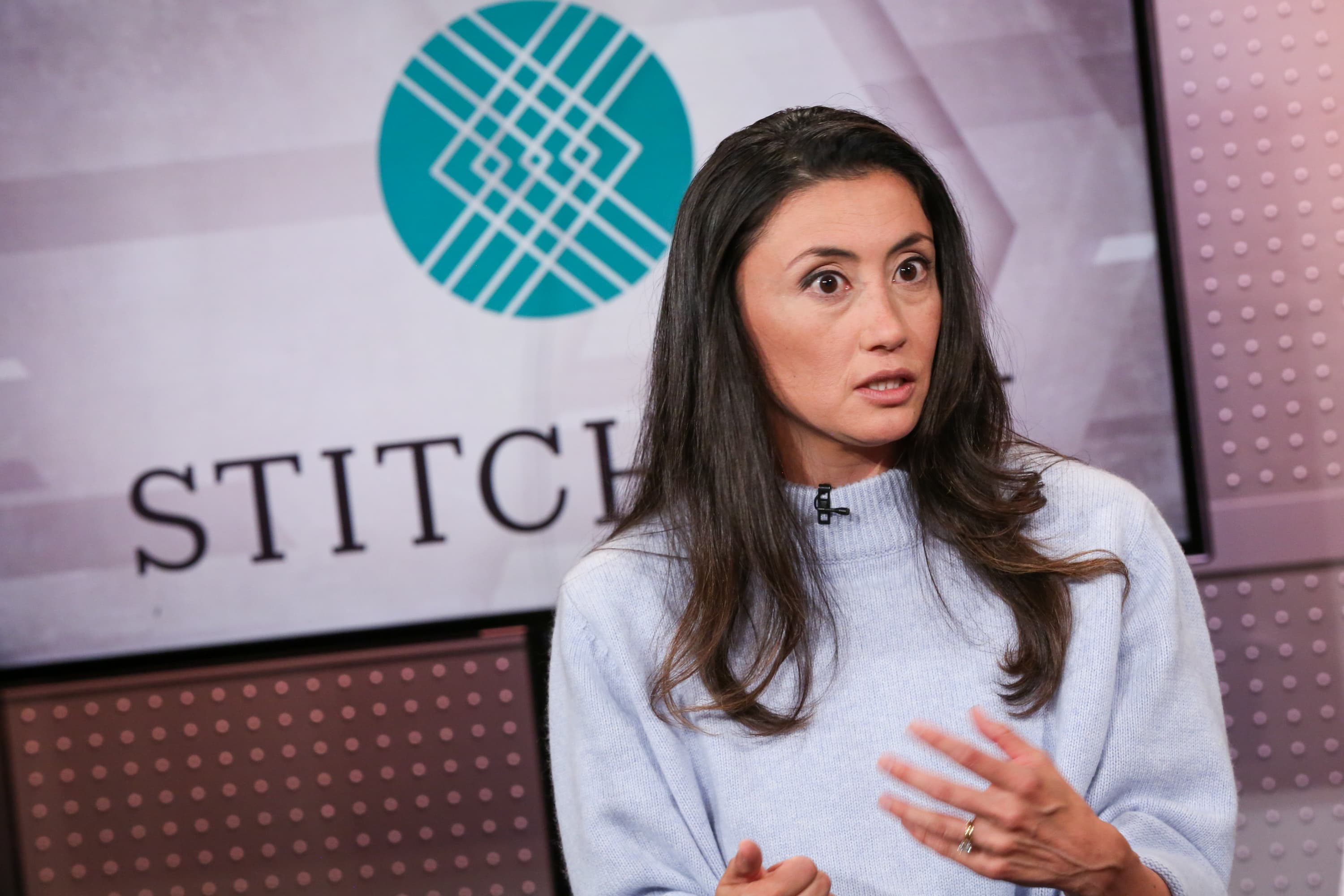Stitch Fix shares dropped by more than 14% in after-hours trading Tuesday as the company reported steep losses for the fiscal fourth quarter.
Here’s how the company did during its fiscal fourth quarter ended Aug. 1 compared with Refinitiv estimates:
- Loss per share: 44 cents vs. 16 cents per share, expected
- Revenue: $443.4 million vs. $414.9 million, expected
The online personal styling service reported a fourth-quarter loss of $44.5 million, or 44 cents per share, compared with earnings of $7.2 million, or 7 cents per share, a year ago.
Revenue in the quarter rose to $443.4 million, an increase of about 11% from $432.1 million a year prior after adjusting for an extra week in the fourth quarter of 2019.
Stitch Fix’s active clients grew to 3.5 million, up 9% year over year. The company defines active clients as people who have bought an item directly from its website, called a “Fix,” in the preceding 52 weeks from the last day of the quarter.
The company — a styling service that sells boxes of clothes that people pay to keep, or return, on a subscription basis — rebounded from a difficult fiscal third quarter. Sales dropped by 9% in that quarter as it was hampered by backlogged orders due to the coronavirus pandemic. At the time, Chief Executive and founder Katrina Lake said she expected a return to revenue growth by the fiscal fourth quarter, as more of its warehouses reopened.
As people sought out casual and comfortable clothing during the pandemic, the company said sales of women’s plus-sized clothes and activewear drove growth in the fourth quarter. Men’s activewear sales increased in the quarter, too, it said.
On a conference call with investors, Lake said the company has shuffled its mix of inventory to focus on athleisure rather than blazers and other items typically worn at the office. She said women’s activewear revenue surged by more than 350% in the fourth quarter compared with a year earlier after adjustments. She said key brands, such as Reebok and Beyond Yoga, were popular with clients.
One of the other bright spots Stitch Fix executives pointed to is its direct buy offering, an option that allows customers to purchase single items versus an entire box of clothes. It also is an entry point for new shoppers who have not tried Stitch Fix before.
In the quarter, the company added a “feed-based” feature of shoppable looks called Trending for You. Stitch Fix said its weekly direct buy orders grew by over 30% in the first two weeks of adding the feature. It is also using an algorithm-based recommendation engine to personalize choices for direct buy clients.
Stitch Fix’s Chief Operating Officer Mike Smith told investors on a conference call that the company plans to automate more and improve efficiency, but he said it must balance cost cutting with a need for investment — such as adding square footage for growing inventory.
In June, Stitch Fix said it would lay off 1,400 stylists in California by the end of September, or about 18% of its workforce. Stitch Fix said it plans to eventually hire 2,000 stylists across other parts of the U.S., where the cost of living is lower, such as Dallas or Minneapolis.
In trading Tuesday, Stitch Fix shares hit a 52-week high of $31.60. Shares are up about 23% this year, bringing its market cap to $3.2 billion.
On a conference call with investors, Lake acknowledged that people’s appetite for shopping has dropped, but said patterns are recovering and Stitch Fix is more adaptable than its competitors.
“One of the really great benefits of our model is that we’ve been able to shift our assortment to what clients need,” she said. “You may not have thought that Stitch Fix would be known for activewear and athleisure a year, two years ago, and now we’re really able to sell that really effectively to our clients and really we’re able to meet our clients where they are.”
And, she added, consumers’ comfort with online shopping will help the company, too.
“We really do believe that the behavior shifts that are happening today are going to be permanent and that this will be pretty significant tailwinds and benefits to our business long-term.”
Read the full earnings release here.
